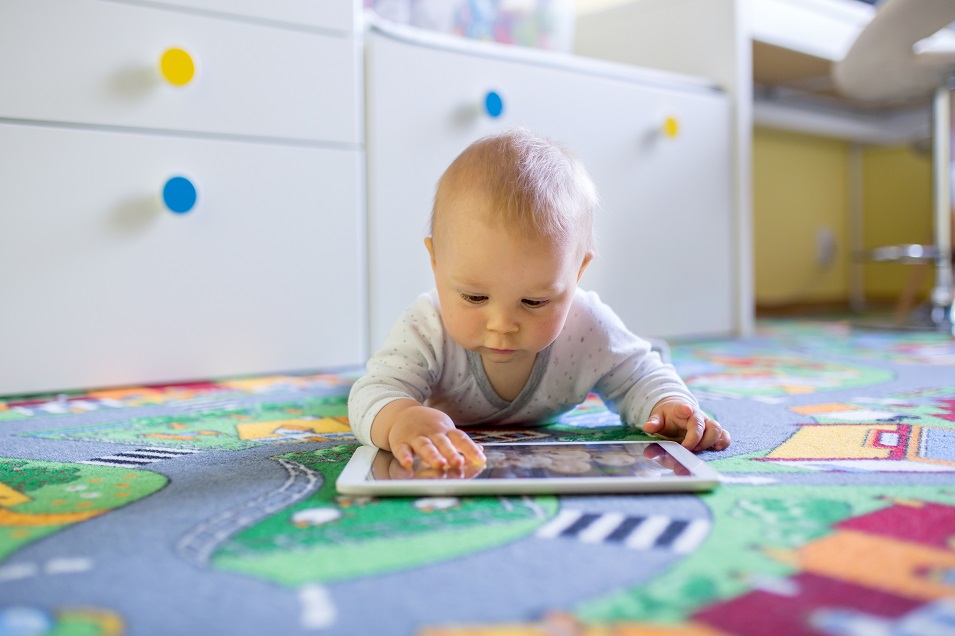New Research Reveals Scary Impacts of Early Screentime on Toddlers
Babies love screen-based videos and games. The funny voices and fast-moving images can stop a tantrum and keep most youngsters quiet for a long time. Many parents believe there’s no harm and dismiss the concerns of pediatricians and early childhood development experts.
New research shows the experts are correct. Early and prolonged exposure to screens can negatively impact a child’s readiness for school.
Background
When Apple launched the iPhone in 2007 and the iPad in 2010, the world changed. Steadily, especially since the COVID lockdowns, online learning and entertainment delivered through handheld devices has exploded. Many young families now work and live virtually using smart screen devices. When screens became portable, the problem of controlling screen time became harder for parents.
Latest Research
In a longitudinal study conducted in Japan, 7097 children (51.8% boys and 48.2% girls) were studied beginning at age one through age four to measure how screen time affects each area of development (cognitive, gross and fine motor, social, communication, and self-care). The Ages and Stages Questionnaire (ASQ) was used the measure the child’s development at regular intervals.
Screen time included watching television, computers, smartphones, or tablets. The parents self-reported the times. Of those 7097 children, 48.5% had less than one hour of screen time, 29.5% watched screens one to two hours, 17.9% had two to four hours of daily use, and 4.1% had more than four hours each day.
Children with four hours of daily screen time had a three-fold higher risk of delays in communication and problem-solving skills (cognitive). Those with four or more hours of screen time each day were nearly five times more likely to have delays in communication and twice as likely to be behind in personal-social skills by age two. Those children who continued these screen-viewing habits had measurable delays even at age four.
In summary, when your baby watches hours of TV or videos and games on a tablet or smartphone, even educational programming, you can expect your child to develop communication and problem-solving delays.
Take Away
Screens seem safe for babies. However, this latest research proves otherwise. Click To Tweet Everyone knows children must be able to communicate, follow directions, and write with a pencil by kindergarten. Those expectations increase regularly. Any delays your baby develops puts them at a disadvantage.
No matter how the shows, videos, or devices are advertised, your child will not be better off using screen-based learning. Screens do not prepare children to engage with others, speak and communicate effectively, write letters, wait in line without touching others, and calmly look at books. Those are skills every child needs when entering school.
Conclusion
Thankfully, young children are resilient, and some delays can be remedied. However, there is never a guarantee your baby can catch up. When a child starts school delayed in skills, they often remain behind. No mother wants that for her baby.
If you are worried about your child, reduce or eliminate screen time. Today’s parents grew up on handheld screens and are reluctant to believe that babies and children don’t need them. Previous generations played with other toys and engaged with people more often.
Early learning activities shape your child’s school readiness. While screens are fun, they have no proven benefits when viewed through the lens of getting your baby ready for school.
On a typical day, how many hours do you allow your baby to view a TV show, DVD, or video game, or smartphone/tablet content?
Get your Milestone Tracker here.
(Photo: Adobe Stock)
Disclaimer: All information presented is general education and is not intended as specific prescriptions for your child. If you have concerns about any aspect of your baby’s development, talk with your doctor. If your child receives any intervention or therapy, this information is not intended to be used without their knowledge.

